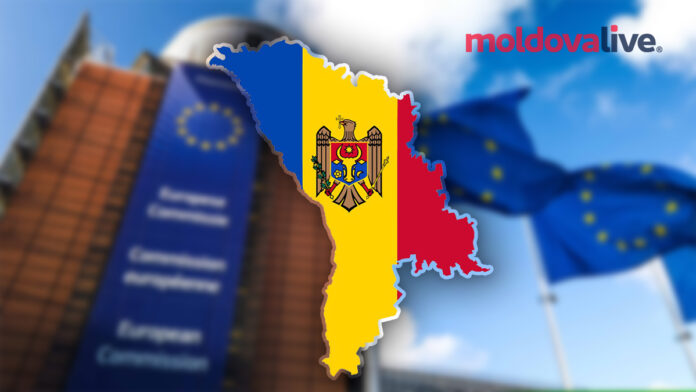The opening of EU accession negotiations recognizes Moldova’s commitment to reform despite ongoing Russian interference. Moldova made significant progress in the initial negotiation phase, focusing on legislative screening, and the European Commission, according to its Enlargement Report, now anticipates the start of cluster negotiations.
Today, the European Commission released its annual Enlargement Package, which reviews the status and progress of Albania, Bosnia and Herzegovina, Kosovo, Montenegro, North Macedonia, Serbia, Georgia, Moldova, Ukraine, and Turkey in their paths to EU membership. The report includes recommendations and guidance for each country’s reform priorities.
For Moldova, the European Commission highlighted the importance of the accession negotiations as a testament to the country’s resolve to pursue EU reforms despite challenges from Russia and the impact of its war against Ukraine. Following the first intergovernmental conference in June 2024, Moldova’s legislative screening (the acquis) is progressing well. The Commission aims to open negotiations on cluster topics, starting with foundational issues, as early as 2025, contingent on Moldova meeting all required conditions.
EU enlargement presents historic opportunities for member states and candidate countries, yielding socio-economic, political, and security benefits. European Commission President Ursula von der Leyen reiterated that enlargement remains a top priority. “The current geopolitical situation makes it more urgent than ever to complete the reunification of our continent, grounded in shared values of democracy and the rule of law. We’ve made significant strides in recent years toward integrating new members. It will remain a priority of the Commission,” she affirmed.
FOR THE MOST IMPORTANT NEWS, FOLLOW US ON TWITTER!
EU High Representative Josep Borrell emphasized that EU membership is a strategic choice. “These past five years of challenges highlight the need for new momentum in EU enlargement. Our partners have embraced this, aligning with EU values and policies,” Borrell said.
European Commissioner for Neighbourhood Policy and Enlargement Olivér Várhelyi stressed the strategic value of enlargement for peace, stability, and socio-economic growth. “Our annual Enlargement Package provides a factual assessment of progress, giving our partners clear guidance on where reforms can accelerate their EU journey. With tools like the Economic and Investment Plans, the Ukraine Facility, and Growth Plans for the Western Balkans and Moldova, we support countries’ reforms and economic progress,” he noted.
The Commission echoed similar praise for Ukraine, recognizing its commitment to reforms despite the ongoing conflict. Following the June 2024 intergovernmental conference, Ukraine’s screening process is also progressing well, with cluster negotiations anticipated in 2025, pending the completion of all prerequisites.
Georgia’s EU accession process, however, has stalled. After gaining candidate status in December 2023, Georgia’s course since early 2024 has raised concerns. The OSCE election mission identified several issues during Georgia’s recent parliamentary elections in a tense, polarized environment.
The enlargement process has advanced steadily in 2023 and 2024. On 15 October 2024, Albania began negotiations on the fundamentals cluster. Ukraine and Moldova launched accession talks in June 2024.


